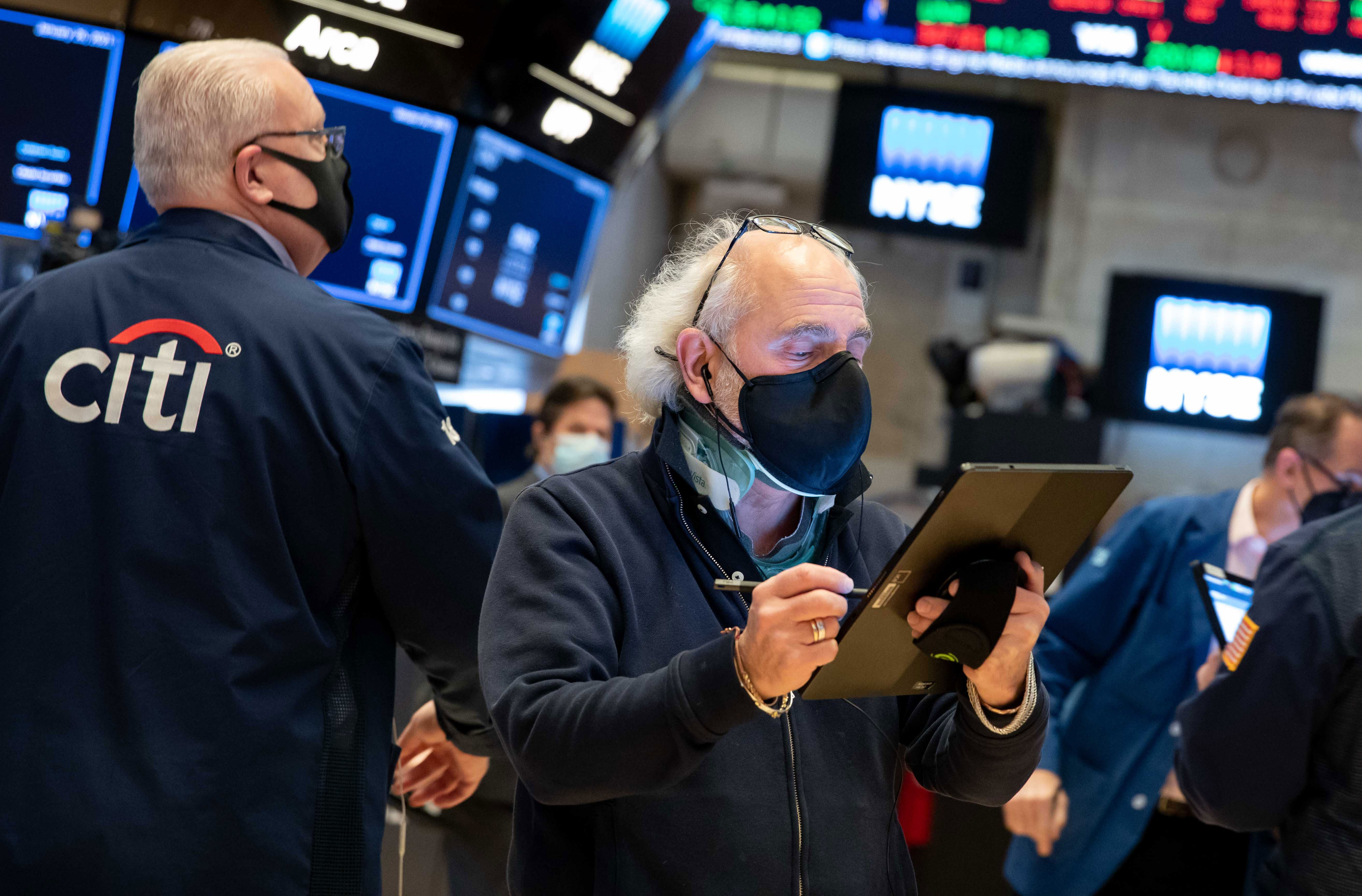Rally gains steam as market rebounds from worst sell-off in 3 months, Dow up 500 points

U.S. stocks climbed on Thursday following a sharp sell-off on Wall Street that saw the S&P 500 and the Dow Jones Industrial Average suffer their worst drop in three months.
The S&P 500 rose 1.4%, led by health care and utilities. The blue-chip Dow gained 500 points, or 1.5%, boosted by Intel and American Express. The tech-heavy Nasdaq Composite climbed 1.0%.
Shares of American Airlines surged more than 15% after the carrier posted better-than-feared quarterly results. Short covering also contributed to the gains as hedge funds and other short sellers rushed to buy shares to cut their losses. American Airlines is the most-shorted U.S. airline, according to FactSet.
Wall Street suffered steep declines on Wednesday, with the S&P 500 and the Dow posting their biggest one-day decline since October, as the speculative buying frenzy in heavily shorted stocks kept investors on edge. Some fear that hedge funds being squeezed could be forced to reduce their equity holdings to raise cash. Others called it a sign of a bubble forming in the market.
Brick-and-mortar video game retailer GameStop, a red-hot target on the WallStreetBets Reddit chat room, fell more than 20% amid multiple trading halts, cutting its massive week-to-date gains of 300%. The stock started dropping as word of broker restrictions began to spread. Interactive Brokers and Robinhood have limited transactions for heavily shorted names including GameStop and AMC Entertainment.
AMC Entertainment fell 50% after soaring a whopping 300% in the previous session. Bed Bath & Beyond slid 25%.
GameStop has soared more than 1,300% in January alone as newbie day traders keep pushing each other to pile into the shares and call options, creating massive short squeezes in the name. The stock is still the most shorted name in the market with 120% of its float shares sold short, according to FactSet.
“This market action is nothing more than another epic parabolic bubble that has been going on since the history of time,” Peter Boockvar, chief investment officer at Bleakley Advisory Group, said in a note. “This is not investing. This is not planning for one’s retirement with a diversified portfolio. This is not prudent analysis of stocks… And these traders forget that buying a stock is buying a piece of a company but instead they are just speculating on a stock symbol in the ultimate game of hot potato.”
Trading volume exploded amid the retail buying spree in the previous session with 23.7 billion shares changing hands, marking the heaviest trading day since at least 2007. On Wednesday, U.S. equity option volumes hit a record 24.5 billion shares and 57.1 million contracts, according to Piper Sandler.
“Short squeezes causing implosions in some hedge funds are joining SPACs, IPOs, and bitcoin as data points supporting a market bubble thesis,” Scott Knapp, chief market strategist at CUNA Mutual Group, said in an email. “This is a time for caution for investors.”
Apple turned in its largest revenue on record at $111.4 billion in its fiscal first-quarter earnings report for fiscal 2021. Sales for every product category rose by double-digit percentage points. Shares of the tech giant, however, dipped nearly 2%.
Tesla dropped about 3% after the electric car maker posted worse-than-expected earnings for the latest quarter. The company also said it expects annual average delivery growth of 50% going forward.
On the data front, dross domestic product increased at a 4.0% pace in the fourth quarter, slightly below the 4.3% expectation from economists surveyed by Dow Jones.
The number of first-time filers for unemployment benefits rose less than expected last week. Jobless claims totaled 847,000 for the week ended Jan. 23, the Labor Department reported Thursday. Economists polled by Dow Jones had expected first-time claims to total 875,000.
Subscribe to CNBC PRO for exclusive insights and analysis, and live business day programming from around the world.




